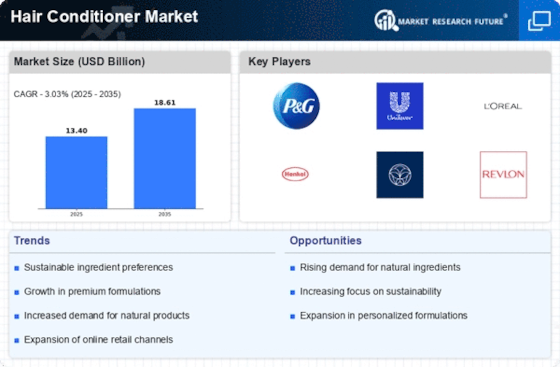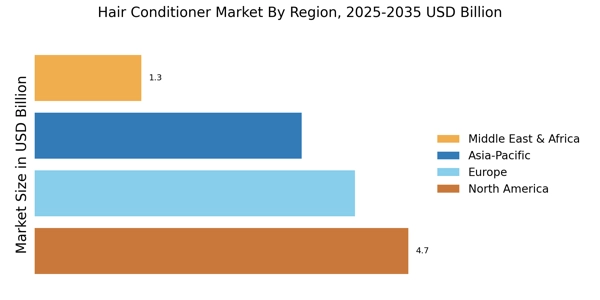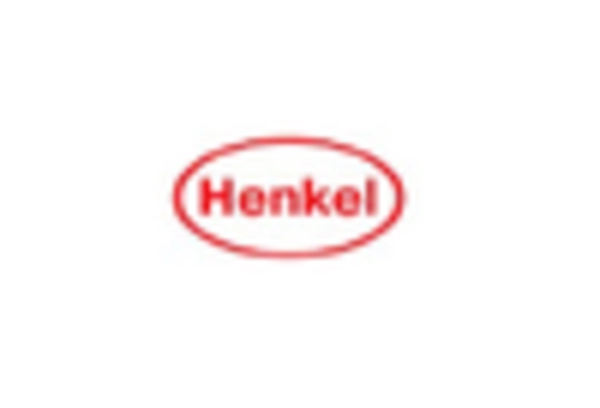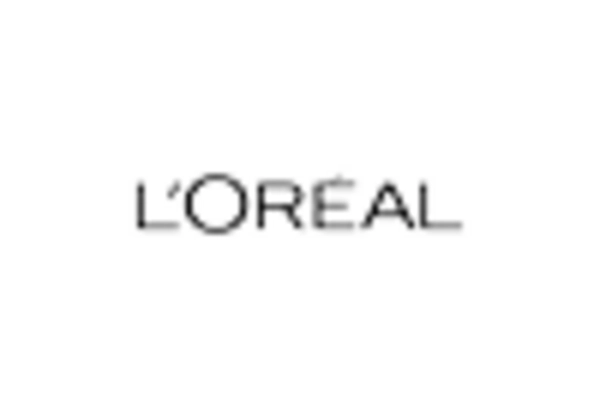Growing Awareness of Hair Health
There is a burgeoning awareness regarding the importance of hair health, which is propelling the Hair Conditioner Market forward. Consumers are becoming more educated about the effects of environmental stressors, such as pollution and UV exposure, on hair quality. This awareness is leading to an increased demand for conditioners that offer protective benefits, such as UV filters and anti-pollution properties. Market data suggests that products designed to enhance hair health are gaining traction, with a projected increase in sales as consumers prioritize hair care as an integral part of their overall wellness routine within the Hair Conditioner Market.
Expansion of Distribution Channels
The Hair Conditioner Market is experiencing an expansion of distribution channels, which is facilitating greater accessibility for consumers. Traditional retail outlets are increasingly complemented by online platforms, allowing consumers to purchase hair conditioners with ease. The rise of e-commerce has been particularly impactful, as it provides a convenient shopping experience and a wider selection of products. Data indicates that online sales of hair care products are expected to grow at a rate of 15% annually, reflecting a shift in consumer shopping behavior. This expansion in distribution channels is likely to enhance the reach of brands within the Hair Conditioner Market, ultimately driving sales and market growth.
Technological Advancements in Formulation
Innovations in formulation technology are transforming the Hair Conditioner Market, enabling the development of products that cater to diverse hair types and concerns. Advanced research in hair science has led to the creation of conditioners that not only moisturize but also repair and protect hair from damage. For instance, the introduction of micro-encapsulation technology allows for the sustained release of active ingredients, enhancing the effectiveness of conditioners. This trend is expected to drive market growth, as consumers increasingly seek products that offer multifunctional benefits, thereby expanding the overall appeal of the Hair Conditioner Market.
Increasing Demand for Sustainable Products
The Hair Conditioner Market is witnessing a notable shift towards sustainability, as consumers increasingly prefer products that are environmentally friendly. This trend is driven by heightened awareness of ecological issues and a desire for products that do not harm the planet. According to recent data, the market for sustainable hair care products is projected to grow significantly, with a compound annual growth rate of approximately 10% over the next five years. Brands that emphasize eco-friendly packaging and natural ingredients are likely to capture a larger share of the Hair Conditioner Market, appealing to a demographic that prioritizes sustainability in their purchasing decisions.
Rising Influence of Social Media and Beauty Influencers
The Hair Conditioner Market is significantly influenced by social media platforms, where beauty influencers play a crucial role in shaping consumer preferences. As these influencers showcase various hair care routines and products, they create a direct impact on purchasing decisions. The rise of platforms like Instagram and TikTok has led to a surge in product visibility, with many consumers turning to these channels for recommendations. This trend is likely to continue, as brands increasingly collaborate with influencers to promote their hair conditioners, thereby enhancing brand awareness and driving sales within the Hair Conditioner Market.

















